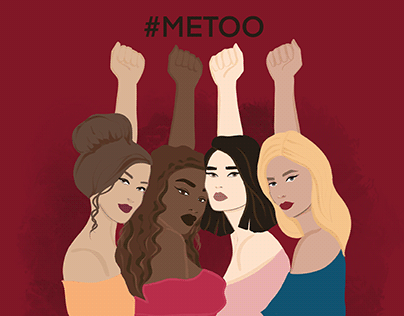


Why are we not surprised by the Wrestling Federation of India, which is under the scanner with the recent alleged accusations against them for harassment meted out to the women wrestlers of India?
There was a protest at New Delhi’s Jantar Mantar by Bajrang Punia, Sakshi Mallik, and Vinesh Phogat, who are demanding that strict action be taken against the alleged accused persons.
Brij Bhushan, the WFI chief, has dared Vinesh Phogat, the gold medalist, to come before him and speak up about the issues. It sounded almost like a threat.
According to Vinesh Phogat, there are regular sexual harassment issues, and she has also received death threats if she ever brings this up or tries to speak up about it.
We all know by now that women in sports are not given enough media coverage, and brands don’t easily sign up with too many kinds of sports apart from cricket, which has huge marketing campaigns. So even male wrestlers can barely earn enough to get advertisers queuing up at their doorstep. Most can’t economically raise their living standards with sports or go on to become known faces in India. For female wrestlers, it falls even lower. They learn to accept this place, which is at the end of the brand endorsement chain.
With India poised to embrace Indianness. We are screaming out from every corner about the pride of “made in India,” etc. There is the Maharashtra government, which recently declared that Hindi must become the national language. Ignoring parts of India that don’t speak the language So, with nationalism as the main lens of a new India, isn’t it time to look into the world of traditional sports in India too?
Across India since time immemorial, there have existed the age-old Akharas where the Guru Shiksha system still exists. But they are all in very dilapidated conditions. They don’t have access to better funds, which, in turn, would improve their situation or sharpen their sport.
So obviously, the Indian citizen’s angst and worry and the constant media coverage we received about the tragic recent car accident of Rishab Pant are understandable. Most of India won’t feel the same grief or have the same passion for the issues raised for women wrestlers, who are protesting in the biting cold of Delhi, demanding that they are treated better and not based on gender.
In the Olympics, Sakshi Malik became the first Indian woman to win a medal in wrestling. She won the bronze medal in the women’s 58 kg freestyle wrestling. But we haven’t yet seen too many brands sign up with her, as is the case for men’s cricket stars in India.
Therefore, Vinesh Phogat’s voice must matter, as she became the first Indian woman wrestler to win gold in both the Commonwealth and Asian Games. She is the only Indian woman wrestler to win multiple medals at the World Wrestling Championships. If India doesn’t listen to her angst and address it, we will be doing a huge disservice to her hard work and her undying passion for the sport.
#MeToo in sports must not be brushed under the carpet. When the women wrestlers are ready to talk about their experiences, if the authorities fail to listen and support them, we will continue this chain of wrongdoing, where sexual assault will remain the norm and the accused will get away with harassment forever.

Mohua Chinappa is an author and a podcaster of a show called The Mohua Show.